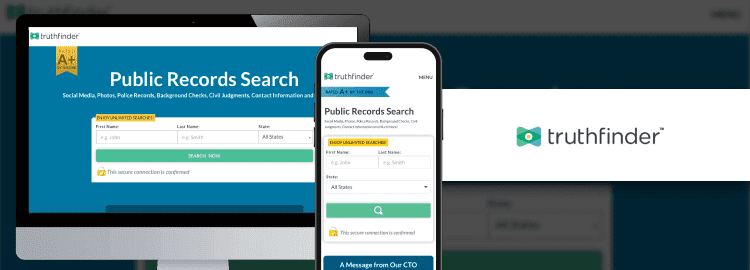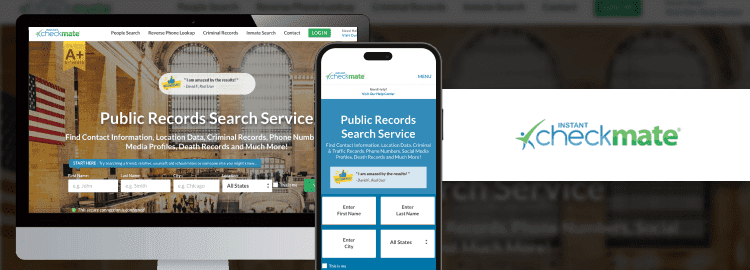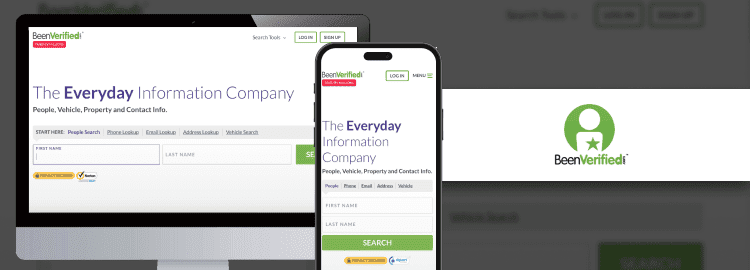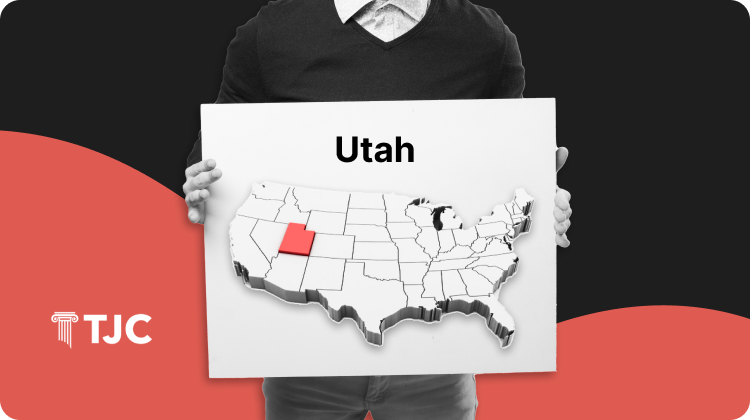Ever wondered what a background check involves and when it might be useful in Utah? A background check helps confirm someone’s identity and uncover key details about their past. In Utah, these checks are very useful for hiring employees, screening tenants, or simply getting to know someone better.
This guide will walk you through the steps to conduct a background check in Utah and highlight important regulations to be aware of. Understanding its procedure will help you make well-informed decisions with confidence.
Need a Background Check?
Get StartedWhat Is a Utah Background Check?
A Utah background check is a detailed look into a person’s history, covering criminal records, job history, education, and more. These checks are crucial for making informed decisions in situations like hiring employees, renting property, or ensuring safety in personal relationships.
In Utah, background checks help verify someone’s identity and trustworthiness. Whether you are a private employer, or a landlord, understanding what a background check involves and how to use it is important. This ensures you’re following Utah law and getting accurate information.
How Do I Get a State Background Check in Utah?
Getting a state background check in Utah is straightforward if you follow these steps:
- Visit the official website: Start by accessing the official Utah Bureau of Criminal Identification (BCI) site.
- Download and complete the application form: Fill out the necessary details about the person being checked.
- Get fingerprints taken: This can be done at local law enforcement agencies or authorized fingerprinting services.
- Submit the form and fingerprints: Mail or deliver them in person to the BCI.
- Pay the required fee: Ensure to include payment for processing.
- Wait for the results: Background check results will be processed and sent to you.
What Are the Background Check Laws in Utah?
Conducting background checks in Utah involves understanding key laws. These laws protect both employers and job applicants. They ensure fair hiring practices and regulate how background information is collected and used.
Utah Clean Slate Law
The Utah Clean Slate Law allows for the automatic expungement (clearance) of certain criminal records. This applies to individuals who meet specific criteria. This may include remaining conviction-free for a certain time period. This law helps people with minor offenses get a fresh start without past mistakes affecting their job prospects.
Utah Ban the Box Law
The Utah Ban the Box Law prohibits employers from asking about a job candidate’s criminal history on initial job applications. This law aims to reduce employment barriers for individuals with criminal records. Employers can only inquire about criminal history after an initial interview.
Utah Criminal Investigations and Technical Services Act
The Utah Criminal Investigations and Technical Services Act governs how criminal background checks are conducted in Utah. It includes regulations on fingerprint-based checks, especially for employment and volunteer positions. The act ensures that background checks are thorough and accurate. This provides reliable information for decision-making.
Local Utah Fair Hiring Laws
Local fair hiring laws in Utah may impose extra restrictions on employers regarding background checks. These laws vary by specific cities or counties. These laws promote fair hiring practices and prevent discrimination based on criminal history.
Fair Credit Reporting Act (FCRA)
The FCRA is a federal law that also applies to background checks in Utah. It sets guidelines on how employers can use credit and background reports. Employers must get the candidate’s consent. They also need to provide the candidate with a copy of the report if any adverse action is taken based on its contents. Compliance with the FCRA is essential for legal and ethical hiring practices.
What Shows up on a Utah Background Check?
A Utah background check can reveal a variety of information depending on the type of check conducted. Here are some common types and what typically shows up:
Civil Court Searches
Civil court searches can uncover past lawsuits, judgments, and other civil cases. This helps you assess a person’s financial and legal responsibilities. It’s useful for landlords or employers evaluating risks when renting property or hiring someone.
These searches reveal details about divorce and child custody matters, as well as other civil matters. This gives you a full view of a person’s legal background and any potential issues.
Employment Verification
Employment verification confirms previous job titles and dates of employment. Sometimes the reasons for leaving are also verified. This is crucial for pre-employment checks. It helps you verify the candidate’s experience.
It can also reveal gaps in employment or inconsistencies in their job history. This is vital for making informed hiring decisions and for work history to match the job requirements.
Criminal Background Checks
Criminal background checks show any criminal history, including arrests, charges, and convictions. This is essential for safety and compliance with Utah law. Employers and landlords use this information to assess the risk of hiring or renting to someone.
These checks can include misdemeanors, felonies, and pending criminal cases. Knowing a person’s criminal history tells you a lot about their trustworthiness.
Driving Record Checks
Driving record checks show a person’s driving history, including violations, suspensions, or accidents. This is important for positions involving driving, like delivery drivers or commercial truck operators. You need to ensure candidates have a clean and safe driving record.
These checks can reveal the number of points on a driver’s license, any DUI convictions, and the safety of the driver. This helps you decide if they meet the standards for driving-related positions.
Drug Testing
Drug testing shows if a person has used illegal substances. It’s often part of the hiring process, especially in transportation, healthcare, and construction. Ensuring a drug-free workplace is crucial for safety and productivity.
Drug tests use urine, hair, or blood samples. You use these results to make informed hiring decisions and follow workplace regulations. This promotes a safe work environment.
Education Verification
Education background checks confirms the degrees and certifications a person claims to have. It’s a critical step in the pre-employment background check process. It also confirms the candidate has the necessary educational background for the job.
It can uncover discrepancies or false claims about educational achievements. Ensuring the authenticity of a candidate’s education helps you with roles that need skills.
Credit Background Checks
Credit background checks reveal a person’s financial history, including debts, bankruptcies, and credit scores. This is important for positions involving financial responsibilities, such as roles in accounting or finance. Employers use this information to assess financial stability and responsibility.
Credit background checks can also indicate patterns of financial behavior, such as late payments or high levels of debt. Understanding an individual’s financial history helps employers make informed decisions, particularly when the role involves handling money or sensitive financial information.
How Long Does a Background Check Last in Utah?
The duration of a background check in Utah varies. Most employment background checks take a few days to a week, while BCI background checks can take several weeks. Criminal background checks typically take a few days. Each type of check has different timelines and uses, so plan accordingly.
How to Look up Criminal Records in Utah for Free?
You can look up criminal records in Utah for free by accessing the Utah Department of Public Safety’s online services. This allows you to search public records databases for criminal history information.
Another way is to visit local courthouses and request access to public records. Many courts offer free access to certain records, which can help you perform your own background check without incurring costs.
How Far Back Does a Background Check Go in Utah?
Utah background checks typically cover the past seven years for most information, under the Fair Credit Reporting Act (FCRA). However, certain records, like criminal history, might be reported for longer periods based on the severity of the offense.
In Utah, employment background checks usually follow this seven-year rule. Yet, it’s important to check with the specific background check provider to understand any exceptions that may apply.
How Much Does a Utah State Background Check Cost?
The cost of a Utah state background check varies. Generally, a basic criminal background check from the Utah Bureau of Criminal Identification costs around $15. More comprehensive checks, like employment background checks, might cost more. This is due to extra services such as employment and education verification.
Private background check services can range from $20 to $100 or more, depending on the depth and scope of the check. It’s crucial to understand the costs involved before proceeding.
Where To Get A Background Check In Utah
You can get a background check in Utah through the Utah Bureau of Criminal Identification (BCI) for official state checks. The BCI provides various background check services for different needs, including criminal history and FBI background checks.
For more comprehensive or specialized checks, private background check companies offer useful features if you want to find someone or run a background check on yourself. These companies often provide faster and more detailed results, ideal for specific needs.
Best Background Check Services
Here are the top options that provide detailed and reliable information quickly and easily.
- TruthFinder – Best for Detailed Insights
- Instant Checkmate – Best for Comprehensive Searches
- BeenVerified – Best for Easy Reports

Looking to conduct a background check in Utah? TruthFinder is a top choice for uncovering someone’s history. Known for its detailed and comprehensive reports, Truthfinder offers a wealth of information at your fingertips. From vetting a new hire to checking on a neighbor or reconnecting with an old friend, TruthFinder’s extensive database makes it easy to get the facts.
Pros
-
Detailed and thorough reports
-
Easy-to-use interface
-
Access to a wide range of public records
Cons
-
Requires a subscription for full access
Star Rating
/ 5.0

If you need quick and reliable background checks in Utah, Instant Checkmate is your go-to service. It provides comprehensive searches that are both fast and efficient, making it perfect for those last-minute decisions. With Instant Checkmate, you can quickly access criminal records, address histories, and much more, ensuring you have the information you need when you need it.
Pros
-
Fast and comprehensive searches
-
User-friendly website
-
Mobile app available for on-the-go checks
Cons
-
Subscription required for detailed reports
-
Occasional inaccuracies in data
Star Rating
/ 5.0

For a seamless and straightforward background check experience in Utah, BeenVerified stands out. It offers easy-to-read reports that are perfect for anyone looking to understand more about someone’s background without the hassle. From criminal records to social media profiles, BeenVerified compiles everything into a simple, user-friendly format.
Pros
-
User-friendly and easy to navigate
-
Affordable pricing options
-
Mobile app available
Cons
-
Some records might be incomplete
-
Full access requires a subscription
Star Rating
/ 5.0
Key Takeaway On Background Check Utah
Understanding the laws around background checks in Utah is vital for making fair and informed decisions. The Utah Clean Slate Law and Ban the Box Law are designed to protect job seekers and employers. They foster a transparent and fair hiring process.
State regulations play a crucial role in enhancing public safety by ensuring that individuals in sensitive positions are thoroughly vetted. The state’s commitment to rigorous screening processes helps protect communities, while ongoing updates to these regulations reflect a proactive approach to addressing emerging security concerns. Stakeholders must stay informed about these changes to maintain compliance and uphold the highest standards of safety.


